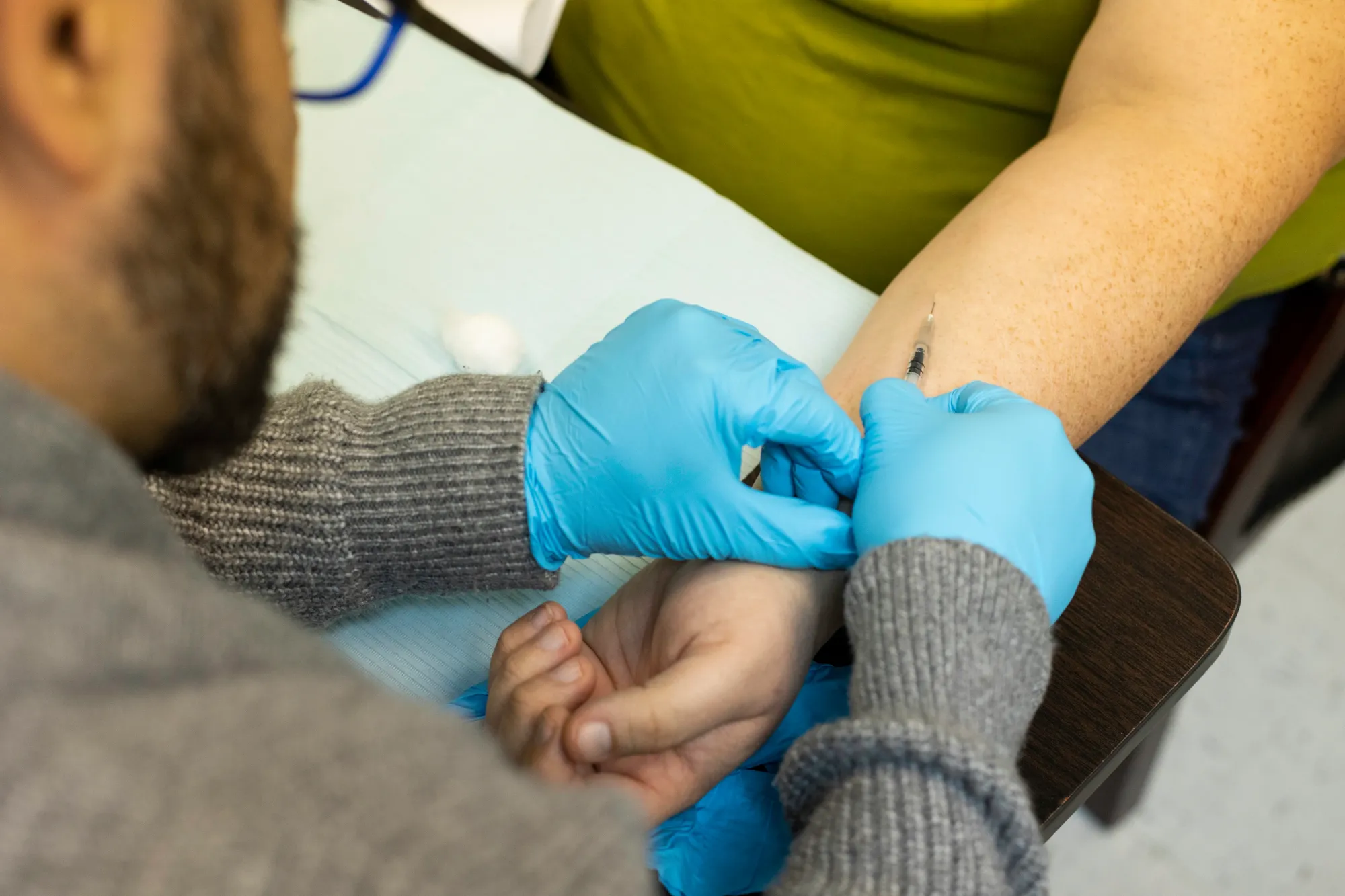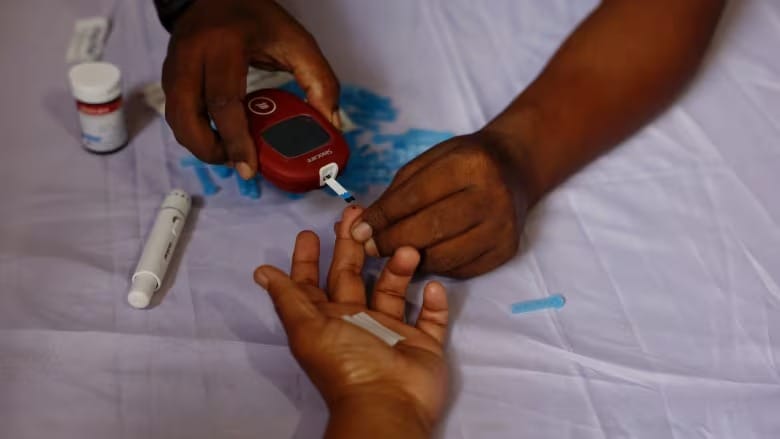Mpox vaccine is 58% effective after one dose, Canadian study finds
The study, published Wednesday in the BMJ, found that a single dose of the Modified vaccinia Ankara-Bavarian Nordic (MVA-BN) was 58 per cent effective in protecting against the mpox infection.

A recent Canadian study reveals that a single dose of the mpox vaccine provides moderate protection against the virus. Although "moderate" may not sound remarkable, researchers describe the results as "terrific" and encourage more at-risk Canadians to get vaccinated.
The study, published in the BMJ on Wednesday, found that a single dose of the Modified Vaccinia Ankara-Bavarian Nordic (MVA-BN) vaccine is 58% effective in preventing mpox infection. While no randomized clinical trials have been conducted to test the vaccine's effectiveness against mpox, previous observational estimates suggested that a single dose could be anywhere from 36% to 86% effective.
“This is significant because prior to the emergency use of this vaccine during a global outbreak, including in Canada, there was no clinical trial data on its effectiveness during an actual outbreak,” said Dr. Sharmistha Mishra, the study’s co-author and associate professor at the University of Toronto's Department of Medicine.
“We had plenty of safety data, but not much information on how well it would work in real-world conditions. Due to the data infrastructure and healthcare system in Ontario, we were able to assess its effectiveness,” Mishra told Global News.
The vaccine is generally administered as a two-dose series, 28 days apart, to protect against mpox, but the study only looked at the effectiveness of one dose.
The MVA-BN vaccine, initially developed as a smallpox vaccine, was introduced during the mpox public health emergency declared in July 2022. In Ontario, it was first offered in June 2022 to high-risk groups, including gay and bisexual men and sex workers, for both post- and pre-exposure protection. Due to limited supply, the province initially rolled out a single-dose strategy, transitioning to a two-dose program by September 2022.

Before the outbreak, data on the MVA-BN’s effectiveness against mpox was scarce. The study aimed to provide a clearer estimate by analyzing 3,204 vaccinated men and comparing them with 3,204 unvaccinated controls. Between June and October 2022, 71 mpox cases were identified—21 among vaccinated individuals and 50 in the unvaccinated group.
Mishra explained, “We aimed to see how effective the vaccine was at preventing infection among those at high risk in Ontario and found a 58% reduction in infection risk among the vaccinated.”
While 58% effectiveness may not seem high, Mishra emphasized that the findings are very promising, stating that “such effectiveness, particularly during an emerging outbreak, can have a significant impact when combined with other measures to reduce transmission.”
With mpox cases rising globally, the researchers stressed that the results reinforce the importance of making the MVA-BN vaccine accessible to at-risk communities.
Mpox on the Rise
On August 14, the World Health Organization (WHO) declared mpox a global public health emergency for the second time in two years, following an outbreak in parts of Africa. Around the same period, Ontario health officials reported a significant rise in mpox cases in the province.
First identified in monkeys in 1958, mpox—previously known as monkeypox—was primarily confined to central and western Africa, transmitted through close contact with infected animals. However, in 2022, the virus spread rapidly worldwide, affecting regions like Europe and North America.
Mpox, which belongs to the same family of viruses as smallpox, causes similar but milder symptoms. Common symptoms include a rash or lesions lasting two to four weeks, fever, headaches, muscle aches, fatigue, and swollen lymph nodes, according to the WHO.
The virus has two genetic variants: Clade I and Clade II. Clade II, responsible for the 2022 global outbreak and circulating in Canada, generally causes milder infections. Clade I, known for its more severe symptoms and higher mortality rates, is now spreading outside of Africa, with cases reported in countries like Kenya, Rwanda, and Sweden.
Although the MVA-BN vaccine has only been studied in Ontario against Clade II, researchers remain optimistic about its potential effectiveness against Clade I. Mishra noted, "While we don't have definitive data on its effectiveness against Clade I, there’s no strong reason to doubt its effectiveness, but further studies are needed."





